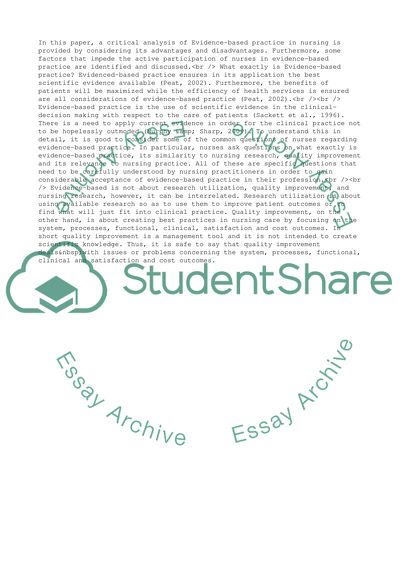Cite this document
(Evidence-Based Practice Case Study Example | Topics and Well Written Essays - 2000 words, n.d.)
Evidence-Based Practice Case Study Example | Topics and Well Written Essays - 2000 words. Retrieved from https://studentshare.org/management/1742078-critical-analysis-of-evidence-based-practice
Evidence-Based Practice Case Study Example | Topics and Well Written Essays - 2000 words. Retrieved from https://studentshare.org/management/1742078-critical-analysis-of-evidence-based-practice
(Evidence-Based Practice Case Study Example | Topics and Well Written Essays - 2000 Words)
Evidence-Based Practice Case Study Example | Topics and Well Written Essays - 2000 Words. https://studentshare.org/management/1742078-critical-analysis-of-evidence-based-practice.
Evidence-Based Practice Case Study Example | Topics and Well Written Essays - 2000 Words. https://studentshare.org/management/1742078-critical-analysis-of-evidence-based-practice.
“Evidence-Based Practice Case Study Example | Topics and Well Written Essays - 2000 Words”. https://studentshare.org/management/1742078-critical-analysis-of-evidence-based-practice.


